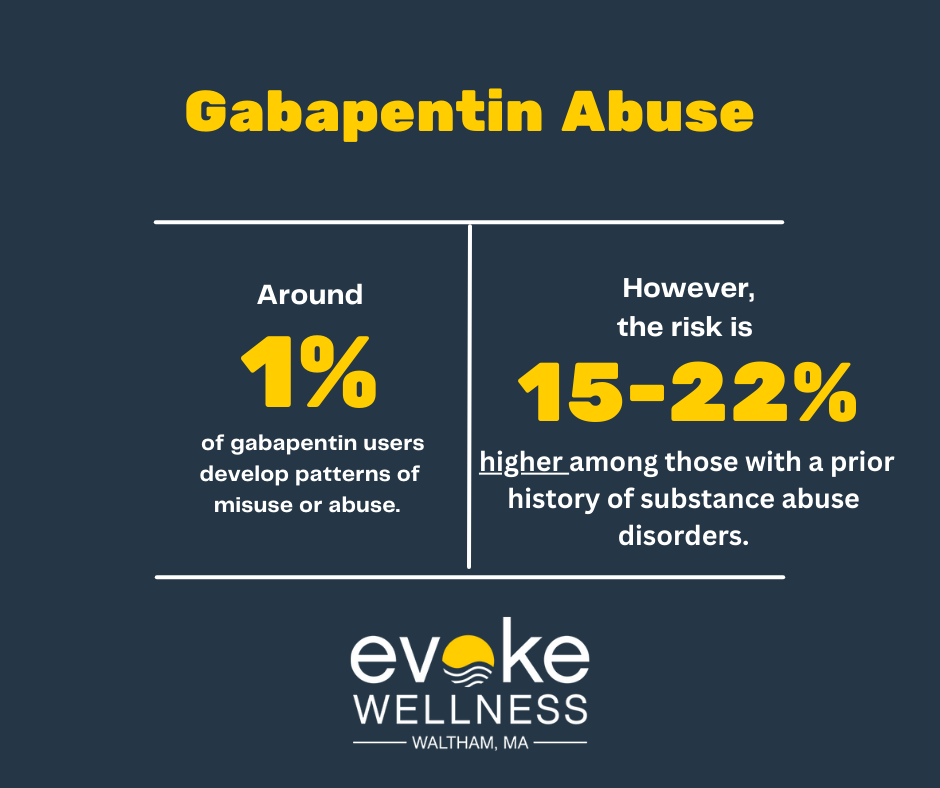You’ve likely heard of gabapentin, also called Neurontin, as it’s a common prescription medication used to treat epilepsy, nerve pain, and restless leg syndrome. Recently, there’s been growing concern about gabapentin abuse and addiction. So let’s get the facts on gabapentin, including how it works in the brain, its approved medical uses, whether it has abuse potential, the signs and symptoms of gabapentin addiction, and key statistics on gabapentin misuse. With prescriptions for gabapentin skyrocketing, it’s crucial to understand the risks, how to use this medication safely under medical supervision, and what to do if you or a loved one is struggling with gabapentin dependence. For professional assistance on the issue, call us at (833)-287-7223 today or reach out online.
What Is Gabapentin?
Gabapentin is a prescription medication primarily used to treat neuropathic pain and prevent seizures. Originally developed as an anti-convulsant drug, it has since been approved for various off-label uses.
An Anticonvulsant Repurposed
Gabapentin belongs to the gabapentinoid class of drugs. It was first introduced in 1993 as a treatment for epilepsy and neuropathic pain. While its exact mechanism is unclear, gabapentin is thought to work by reducing the release of neurotransmitters involved in pain signaling.
Multiple Therapeutic Uses
Beyond seizures and nerve pain, gabapentin is now commonly prescribed off-label for:
- Restless leg syndrome
- Diabetic neuropathy
- Anxiety disorders
- Alcohol/opioid withdrawal
- Menopausal hot flashes
Its wide range of applications has made gabapentin one of the most prescribed medications in the United States. But with increased use comes concerns over potential misuse and addiction.
Can Gabapentin Be Abused?
Gabapentin is generally regarded as a non-addictive medication with a low risk of abuse. However, some recreational misuse has been reported, particularly at high doses.

Potential for Abuse
While gabapentin has a much lower addiction potential compared to opioids or benzodiazepines, it can still produce mild euphoric effects when abused. This may lead some individuals to misuse the drug in order to get high. Our prescription drug addiction treatment program is tailored toward maintaining sobriety from such medications
Studies suggest around 1% of gabapentin users develop patterns of misuse or abuse. However, the risk is higher (15-22%) among those with a prior history of substance abuse disorders.
Signs of Gabapentin Misuse
If someone is abusing gabapentin, signs may include:
- Taking higher doses than prescribed
- Obtaining multiple prescriptions or “doctor shopping”
- Compulsive pill-taking behavior
- Withdrawal effects when stopping use
The key is recognizing changes in behavior or patterns that may indicate abuse. If concerned, it’s best to consult a doctor or addiction specialist for guidance.
Signs of Gabapentin Addiction
Physical Symptoms
- Slurred speech or drowsiness
- Lack of coordination or dizziness
- Nausea, vomiting or constipation
- Tremors or muscle twitches
Psychological Signs
You may experience intense cravings for gabapentin. Anxiety, irritability, or mood swings are common withdrawal effects. Some develop depression or suicidal thoughts when stopping use. Some may even require a medication-assisted treatment program to safely taper off the medication.
Behavioral Changes
Gabapentin misuse often leads to social isolation and strained relationships. You may lie about usage, “doctor shop” for more pills, or engage in illegal activities to obtain the drug. Risky or illegal behavior to get more gabapentin is a major red flag of addiction.
Combining Gabapentin With Other Drugs
Be Cautious With Depressants
Gabapentin can potentially amplify the sedative effects of other central nervous system depressants like alcohol, benzodiazepines, or opioids. Combining gabapentin with these substances increases the risk of excessive drowsiness, dizziness, and respiratory depression – a dangerous scenario that could lead to a coma or life-threatening breathing problems.
Avoid Recreational Mixing
Never mix gabapentin with illicit drugs or alcohol to get high. This unsafe practice can have unpredictable and potentially fatal consequences. Drugs like gabapentin should only be taken as prescribed by a doctor.
Check for Interactions
Certain prescription medications may interact with gabapentin. Antacids can reduce the absorption of gabapentin. Cimetidine, an acid reducer, may increase gabapentin levels. Always consult your doctor or pharmacist about potential drug interactions before combining gabapentin with anything else.
Treating a Gabapentin Addiction
Overcoming a gabapentin addiction requires professional help. Attempting to quit “cold turkey” can be dangerous due to potential withdrawal symptoms.
Medically-Supervised Detox
The first step is a medically-supervised detox program. Doctors will slowly taper your dosage over time to minimize severe withdrawal effects. This allows your body to safely readjust without gabapentin.
Counseling and Therapy
Cognitive-behavioral therapy (CBT) helps identify the root causes that led to addiction. You’ll develop coping mechanisms to resist cravings and prevent relapse. Group therapy counseling provides peer support.
Lifestyle Changes
A comprehensive treatment plan addresses your physical and mental health. Making positive lifestyle changes – like improving sleep, nutrition, and exercise habits – supports long-term sobriety.
Recovering from gabapentin addiction takes time, support, and commitment. But with professional treatment, you can reclaim your life.
Gabapentin Addiction FAQs
Is gabapentin addictive?
Yes, gabapentin can be addictive, especially when taken in higher doses or for longer periods than prescribed. While not as habit-forming as some other medications, gabapentin does carry a risk of dependence and withdrawal symptoms upon discontinuation. Our professionals here at Evoke Waltham are equipped with the tools needed to diagnose and help those who require a prescription drug treatment program.
What are signs of gabapentin addiction?
- Cravings for gabapentin when not taking it
- Needing higher doses to achieve the same effects
- Experiencing withdrawal symptoms like anxiety, insomnia or nausea when stopping
- Continuing use despite negative consequences
How is gabapentin addiction treated?
Treatment typically involves a gradual taper off the medication under medical supervision to avoid severe withdrawal effects. Behavioral therapy, support groups, person-centered therapy, and in some cases, addiction treatment programs may also be recommended.
Conclusion
Ultimately, gabapentin is a medication that requires caution and responsible usage. While not chemically addictive, it does carry a risk of dependence and withdrawal symptoms if abruptly discontinued after regular use. Work closely with your doctor to find the lowest effective dose, do not increase dosage without medical oversight, and taper off slowly rather than stopping gabapentin suddenly. With prudence and physician guidance, gabapentin can be a valuable treatment option for many people dealing with nerve pain, restless legs, anxiety, and more. But understanding its potential for misuse is vital so you can make informed decisions about using this common prescription medication.
Begin Your Journey with Evoke Wellness at Waltham
If you or a loved one is considering outpatient treatment, Evoke Wellness at Waltham invites you to contact us. Our compassionate team is ready to answer your questions, discuss your needs, and help you take the first steps toward recovery. At Evoke Wellness, you will find more than just a treatment program – you’ll discover a community dedicated to your wellness and success. Together, let’s embrace the journey to recovery and the promise of a new beginning. Call us at (833)-287-7223 today or reach out online.


